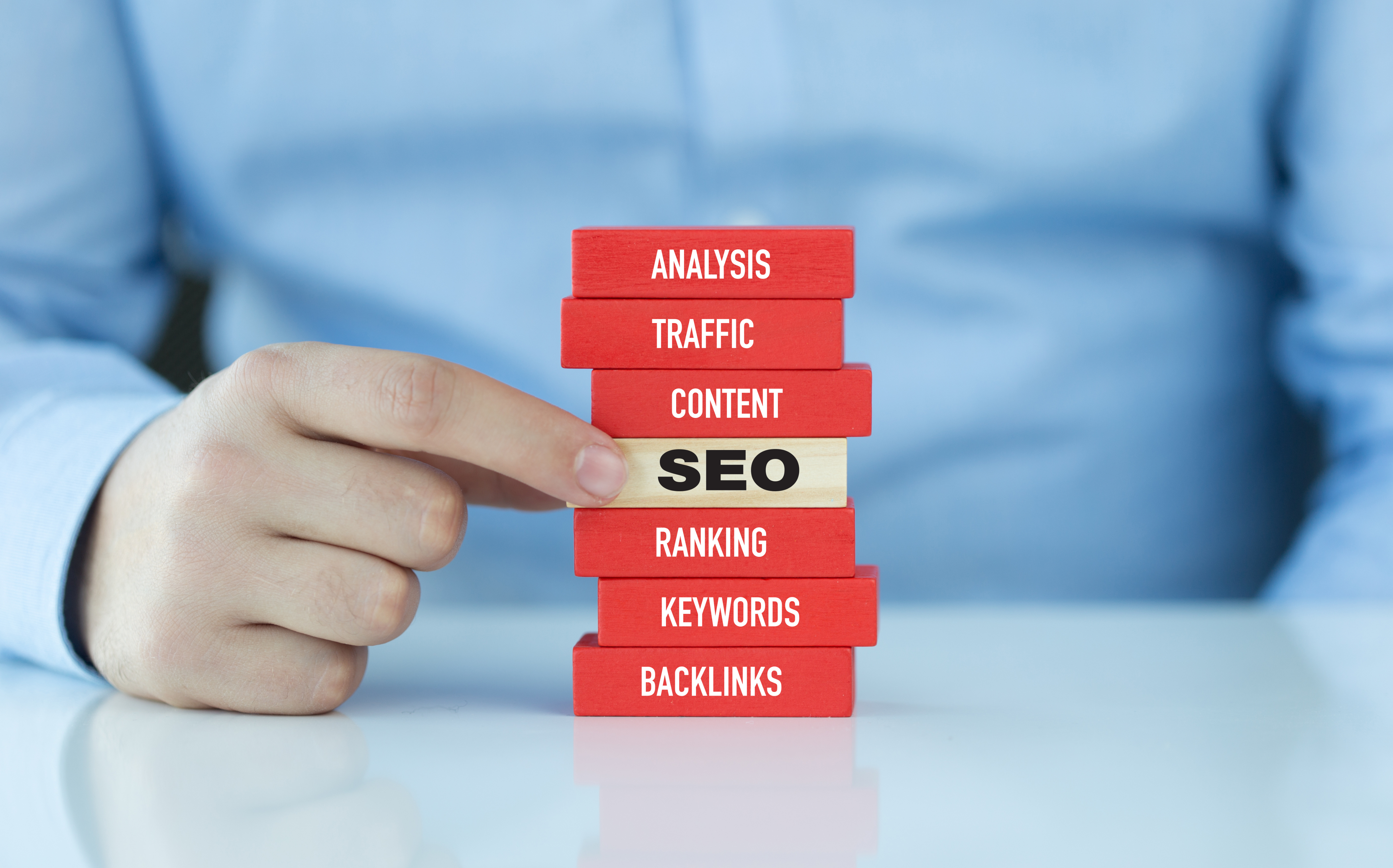In the world of digital marketing, search engine optimization (SEO) is often seen as the key to long-term success. It helps your website rank higher on search engine results pages (SERPs), driving organic traffic and building brand visibility. However, SEO progress can sometimes feel painstakingly slow, leaving many business owners and marketers frustrated. Several underlying factors could be working against your SEO efforts, even if you’re following industry best practices. In this article, we’ll delve into the common issues that could be slowing down your SEO progress and how you can overcome them.
Poor Keyword Research and Targeting

One of the foundational pillars of SEO is keyword research, but this is often where many stumble. If you’re targeting overly competitive keywords or those that don’t align with user intent, you may find yourself lost in a sea of content with little hope of standing out. Keywords need to be specific, relevant to your niche, and reflective of what your audience is searching for. Long-tail keywords, which are more precise search terms, often have lower competition and can offer more opportunities for higher rankings. To get the best results, balance search volume with keyword difficulty, and always align them with user intent. Focusing on irrelevant or high-competition keywords will only slow your SEO progress.
Weak or Thin Content
Content remains one of the most influential factors in SEO, and if your site’s content lacks depth or fails to provide meaningful value, it won’t be favored by search engines. Thin content, which offers little information or depth on a topic, fails to engage readers and doesn’t satisfy search intent. Search engines like Google prioritize high-quality, well-researched, and comprehensive content that answers users’ questions thoroughly. Additionally, stale content that hasn’t been updated in a long time can lose its relevance and ranking potential. Regularly refreshing your content with new insights or data can signal to search engines that your site is actively maintained.
Slow Website Speed

One of the most overlooked factors in SEO is website speed. A slow-loading website can be detrimental to your rankings, as search engines take user experience into account when determining where to position your pages. Websites that load slowly lead to higher bounce rates—users leaving your site before it fully loads—and this sends negative signals to search engines. Google has made it clear that website speed is a ranking factor. Optimizing image sizes, improving server response times, and utilizing tools like Content Delivery Networks (CDNs) can significantly enhance your site’s speed, boosting both your rankings and user experience.
Poor Mobile Optimization
With the majority of web traffic coming from mobile devices, having a mobile-friendly website is no longer optional—it’s a necessity. Google’s mobile-first indexing means that the mobile version of your website is what primarily determines your rankings, regardless of how well your desktop site is optimized. If your site isn’t responsive or offers a poor experience on mobile devices, you’re likely to see slow SEO progress. This includes ensuring fast load times, intuitive navigation, and a seamless design across all screen sizes. Prioritizing mobile optimization will not only improve your rankings but also enhance the user experience for mobile visitors.
Lack of Backlinks or Low-Quality Links
Backlinks, or inbound links from other websites, play a significant role in building domain authority and improving SEO rankings. If your site lacks quality backlinks, it will be difficult to compete with others who have garnered credibility through reputable links. Conversely, if your site has accumulated too many low-quality or spammy backlinks, search engines may penalize you, further slowing your SEO progress. Building backlinks is a time-consuming process, but focusing on acquiring them from authoritative, relevant sites in your niche is essential. This can be achieved through guest blogging, partnerships, and creating shareable content that other sites want to link to.
Ignoring Technical SEO Issues
Technical SEO forms the backbone of your site’s search engine performance, and ignoring these elements can significantly hinder your progress. Common technical issues include broken links, slow page speed, duplicate content, and missing metadata, all of which can negatively impact your rankings. Regular technical audits of your site are crucial for identifying and fixing these issues. Implementing proper schema markup, optimizing crawlability, and fixing 404 errors are all part of ensuring a solid technical foundation for your SEO efforts.
Unoptimized Metadata
Metadata, such as title tags and meta descriptions, may seem like minor elements, but they play an essential role in your site’s SEO performance. If your metadata is unoptimized, it can reduce your click-through rate (CTR) from search results, which is a significant ranking factor. Including relevant keywords naturally in your titles and descriptions can improve visibility, but equally important is making sure that these snippets are compelling and encourage users to click on your link. Missing or duplicate metadata can also confuse search engines and negatively affect your rankings.
Not Leveraging Social Signals
While social media signals are not direct ranking factors for search engines, they can influence your SEO progress indirectly. A strong presence on social media platforms can increase your visibility, drive traffic to your site, and generate shares and backlinks, all of which can improve your rankings over time. Ignoring social media means missing out on opportunities to amplify your content, reach a wider audience, and build brand authority. Regularly sharing valuable content on platforms like Facebook, Twitter, and LinkedIn can lead to increased engagement, which often correlates with better SEO performance.
Inconsistent Content Publishing

Consistency is key when it comes to content creation and publishing. Search engines favor sites that regularly update their content with fresh, valuable information. If your publishing schedule is erratic or you go for long periods without posting new content, search engines may deem your site inactive, resulting in slower indexing and ranking. A well-planned content calendar ensures that you stay consistent, offering new content that attracts both search engines and users. Updating existing content also signals to search engines that your site remains relevant and up-to-date.
Competitor Movements
SEO is not performed in isolation—your competitors are also vying for top spots in search engine rankings. If your competition is ramping up its efforts by publishing high-quality content, acquiring authoritative backlinks, or optimizing their technical SEO, it could explain why your progress feels slow. Regular competitor analysis is essential to ensure that you’re keeping up with industry standards and trends. Adapting and evolving your strategy based on what your competitors are doing can give you an edge in the SEO race.
Overlooking User Experience (UX)
User experience is more important than ever in SEO. Search engines prioritize sites that offer smooth, intuitive navigation, quick loading times, and valuable content. If users land on your site and are met with poor design, intrusive pop-ups, or difficult-to-navigate pages, they’ll likely leave quickly. This increases your bounce rate, which can negatively affect your rankings. By improving UX through better design, clearer calls to action, and reducing distractions, you can keep users engaged for longer periods, improving key SEO metrics like dwell time and reducing bounce rates.
Relying Solely on SEO
While SEO is crucial for long-term growth, relying on it as your only strategy can slow your overall digital marketing efforts. SEO takes time, and results may not be immediate. In the meantime, it’s important to diversify your traffic sources through paid search, social media marketing, and email campaigns. By combining these strategies, you can create a more comprehensive digital presence that complements your SEO efforts while you wait for organic rankings to improve.
Conclusion
SEO is a complex and evolving field, and slow progress can be attributed to a variety of factors. Whether it’s poor keyword research, technical issues, or competitor movements, understanding and addressing these roadblocks can help accelerate your SEO success. By consistently optimizing your site, staying up-to-date with best practices, and diversifying your marketing strategies, you’ll be better positioned to achieve long-term SEO growth.
FAQs
How long does SEO take to show results?
SEO is a long-term strategy and can take anywhere from 3 to 6 months to show noticeable results. Factors like competition, content quality, and backlinks play a significant role in determining the timeline.
What are long-tail keywords and why are they important?
Long-tail keywords are more specific search phrases that typically have lower competition. They are important because they are easier to rank for and often bring in more targeted traffic, improving conversion rates.
Can a slow website really hurt my SEO rankings?
Yes, a slow-loading website negatively impacts user experience and can lead to higher bounce rates, both of which are considered by search engines when ranking pages.
Why are backlinks so important for SEO?
Backlinks act as endorsements from other websites, signaling to search engines that your content is credible and valuable. Quality backlinks can significantly improve your domain authority and rankings.
What is mobile-first indexing, and why does it matter?
Mobile-first indexing means that Google primarily uses the mobile version of your site for ranking and indexing. This makes mobile optimization essential for maintaining and improving your rankings.





